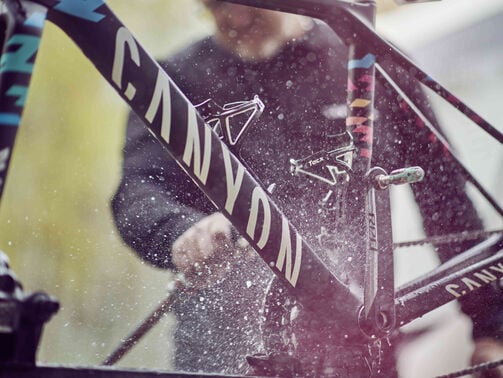How to clean a mountain bike
Cleaning your mountain bike may seem like a mundane task, but there are essential details you should keep in mind to maintain optimal performance. How do you clean your mountain bike without causing any damage?

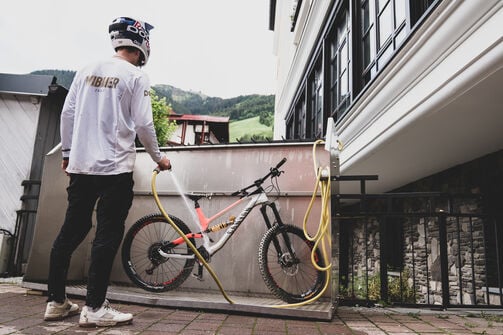
Why should you clean your mountain bike?
While mountain bikes can withstand rough terrain, they need proper care to last a long time. Cycling in wet or muddy conditions exposes your bike’s components to dirt and grime, which causes deterioration and makes it hard to pedal. The drivetrain is the most exposed component of your bicycle, and without proper care, it becomes less efficient and wears out quickly.
Regular maintenance and proper cleaning will prolong the life of your mountain bike and improve its performance. Besides, a clean bike has no sounds or snags and shifts better, leading to a more pleasant ride.
How frequently should you clean your bike?
It is best to clean your MTB after every hard ride or two. However, your bike needs a deep clean when you ride in the rain or muddy terrain. If you have an electric mountain bike, ensure you clean it every week if you ride through sand, snow, rain and mud. The dust and grime can interfere with the E-MTB battery’s performance.
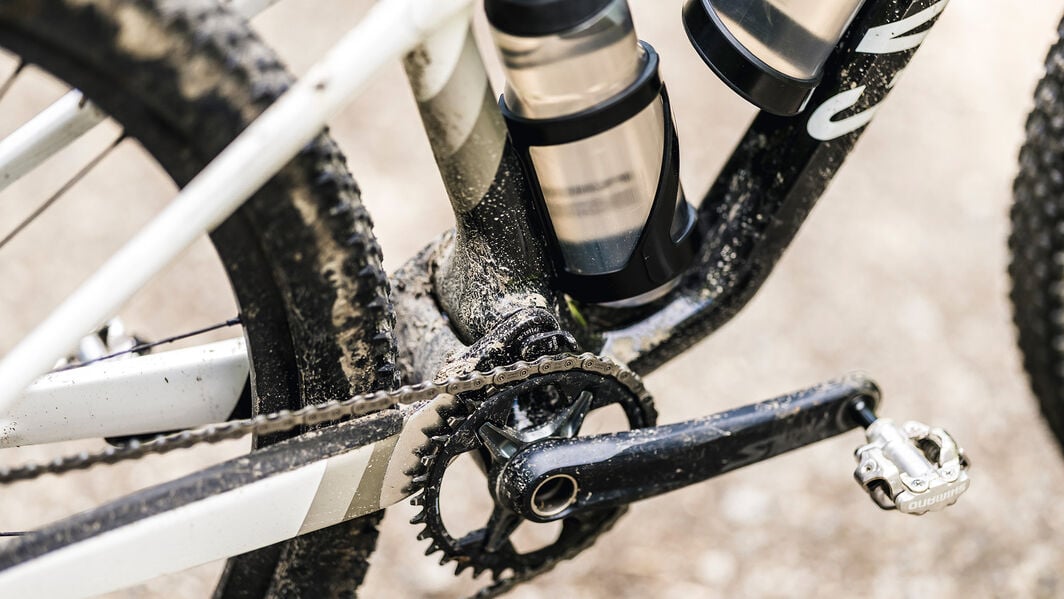
What supplies do you need to clean your mountain bike?
Finding a spacious place to clean your bike makes the task easier. You can wash your bike at the local bike shop or in your garden. You also need the following items for effective cleaning:
-
Clean rags or cloths: They are helpful for general cleaning or drying. You can also use them to wipe grease or oil on the bike.
-
Brushes: You need a variety of soft and firm brushes to remove dirt from the surfaces. Look for ideal sizes and shapes that can get into the hard-to-reach parts of the bicycle.
-
Water and a hosepipe: You will use the water for rinsing, but you should avoid using a high-pressure hose. Excessive pressure can damage your mountain bike’s bearing systems.
-
Soap: You need diluted soap to clean the frame. Any multipurpose soap can get the job done, or you can buy a preformulated bike cleaner.
-
Degreaser: Gummy parts require a degreaser to remove the grime. Find a degreaser that is eco-friendly for your bike chain and avoid turpentine.
A bike stand can be helpful when cleaning and maintaining your bike. You can elevate the MTB to a comfortable height when you are washing and it will allow you to clean the moving parts since you can remove the wheels or turn the pedals. A regular stand is perfect for your mountain bike, but if you have an e-bike, your stand should be strong to handle the extra weight.
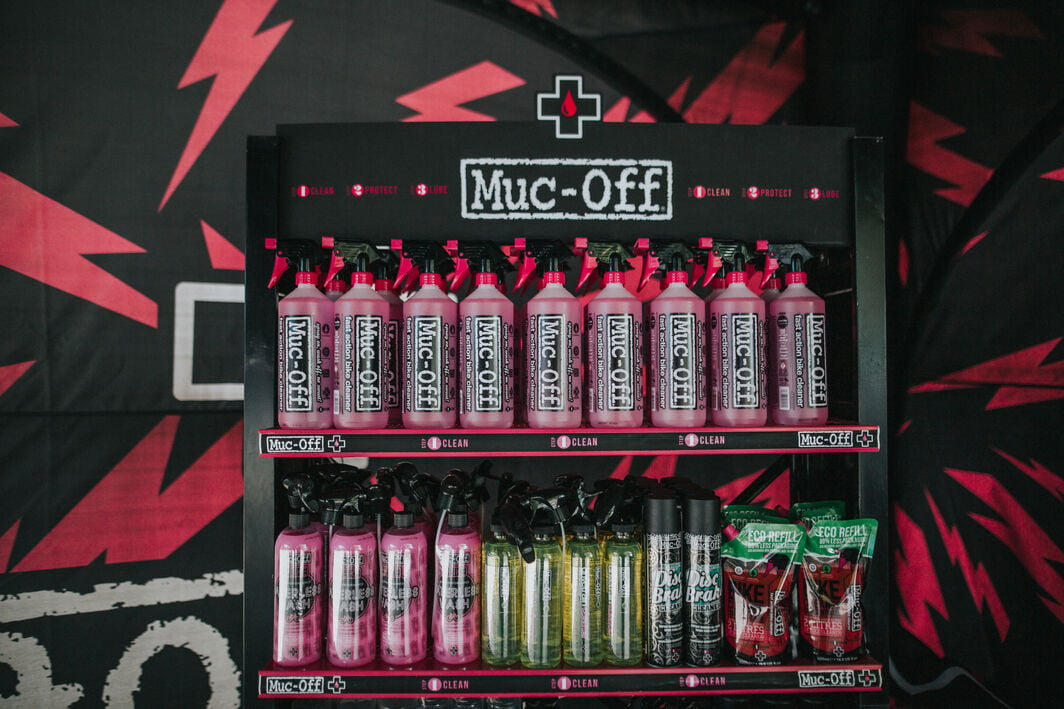
What bike parts should you focus on when cleaning?
Most parts of your mountain bike will only require a damp rag to clean. However, moving parts require extra attention and occasional scrubbing and lubrication. For instance, the drivetrain consists of the chainrings, derailleur, cassette and chain, and requires extra attention during cleaning to ensure optimal performance. Here are the most important parts to focus on during cleaning:
Drivetrain
Use small abrasive brushes to clean the parts of the drivetrain. A small brush can get into the crevices near the pulley, teeth and rings to remove any dirt. Rinse and repeat the process if you see any lingering dirt. Do not forget to clean the cassette with soap and a brush, and rinse it off thoroughly.
The Chain
Your chain needs regular care to slow the rate of wear. Unfortunately, it collects a lot of dust and dirt, leading to built-up grime. Use a degreaser and a rag to remove the grime or apply soap and rotate the cranks before rinsing it with cold water.
Bike Frame
Hose your bike down to soak it in water and remove any large pieces of dirt on the bike’s frame and wheels. Apply soap and use a gentle brush to scrub the headset, handlebars, seat stays, seat post and brakes. Work from the top down and rinse the frame with clean water. When cleaning the disc brakes, rub alcohol on the rotor and brake pads instead of using soapy water.
Wheels
When cleaning the tyres, use bigger brushes to scrub with minimal effort. Soap your brush and begin from the valve to the wheels, spokes and hubs before flipping the wheels to wash the other side.
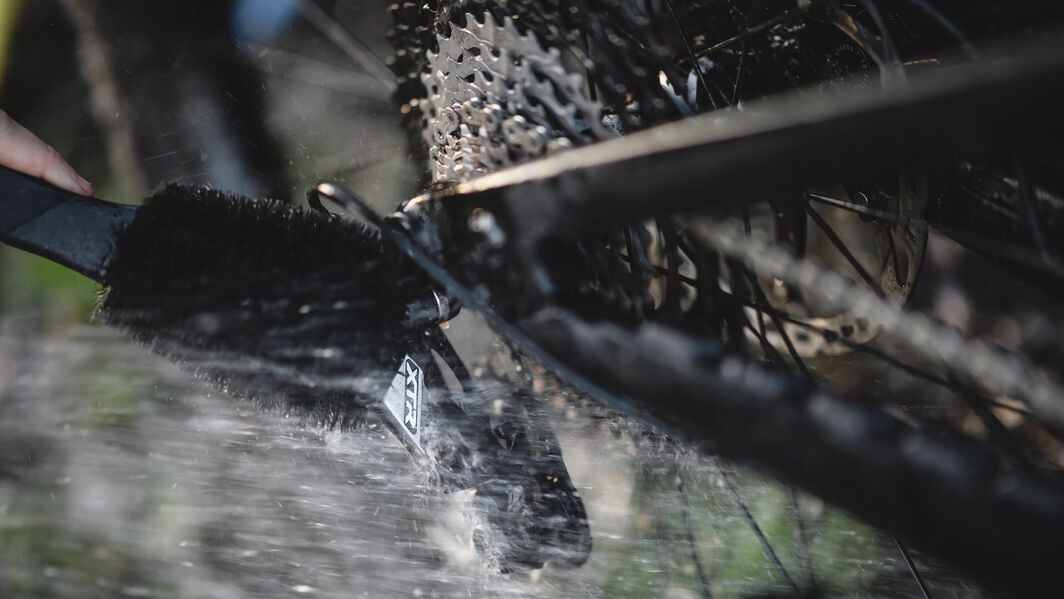
What should you do after washing your bike?
After cleaning and rinsing all the parts, dry it off with a rag or an air compressor if you have one. You can also bounce the bike to knock off excess water and leave it to air dry in the sun. Since you scrub most of the grease out of the drivetrain, lubricate the moving parts to ensure they run smoothly.
Choose a lube that suits your riding terrain and coat the entire length of the chain. Allow the lube to soak for a few minutes before you wipe off any excess lubricant. The excess lube can attract dust leading to a build-up of dirt. Applying lube prevents squeaking and ensures the derailleur functions correctly. As a rule, you should lubricate the chain whenever it appears dry and after washing to prevent rusting.
If you want to, you can polish the bike frame with silicone polish before riding in wet and muddy terrain. The polish prevents mud from sticking to your bike. However, polish attracts dust when you cycle in dry terrain.
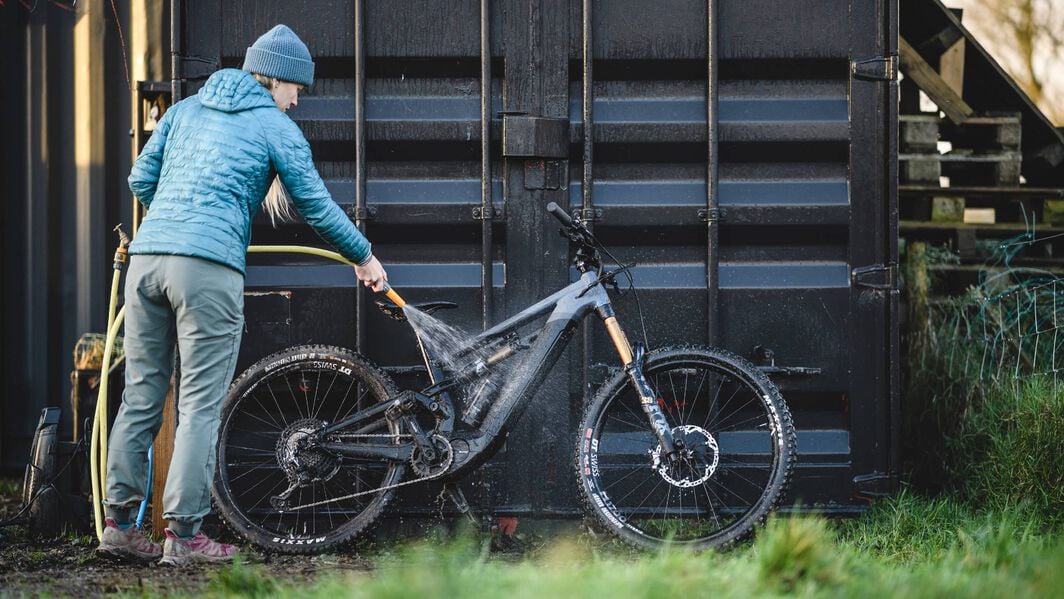
Cleaning an electric mountain bike
The procedure for cleaning an E-MTB is similar to an ordinary bike. However, you must remove the battery before you begin cleaning it. You should also remove the display or cover it with a cling-film to ensure water does not ruin it. While most e-bikes are water-resistant, you need to protect the parts that would short circuit when in contact with water.
Keep a clean bike for long-term use
Preventive maintenance through regular cleaning will keep your bike running for a long time and ensure pleasant mountain biking. Keep your bike in excellent condition with the above cleaning tips.
Cleaners & Lubricants
Did this article help?
Thank you for your feedback
